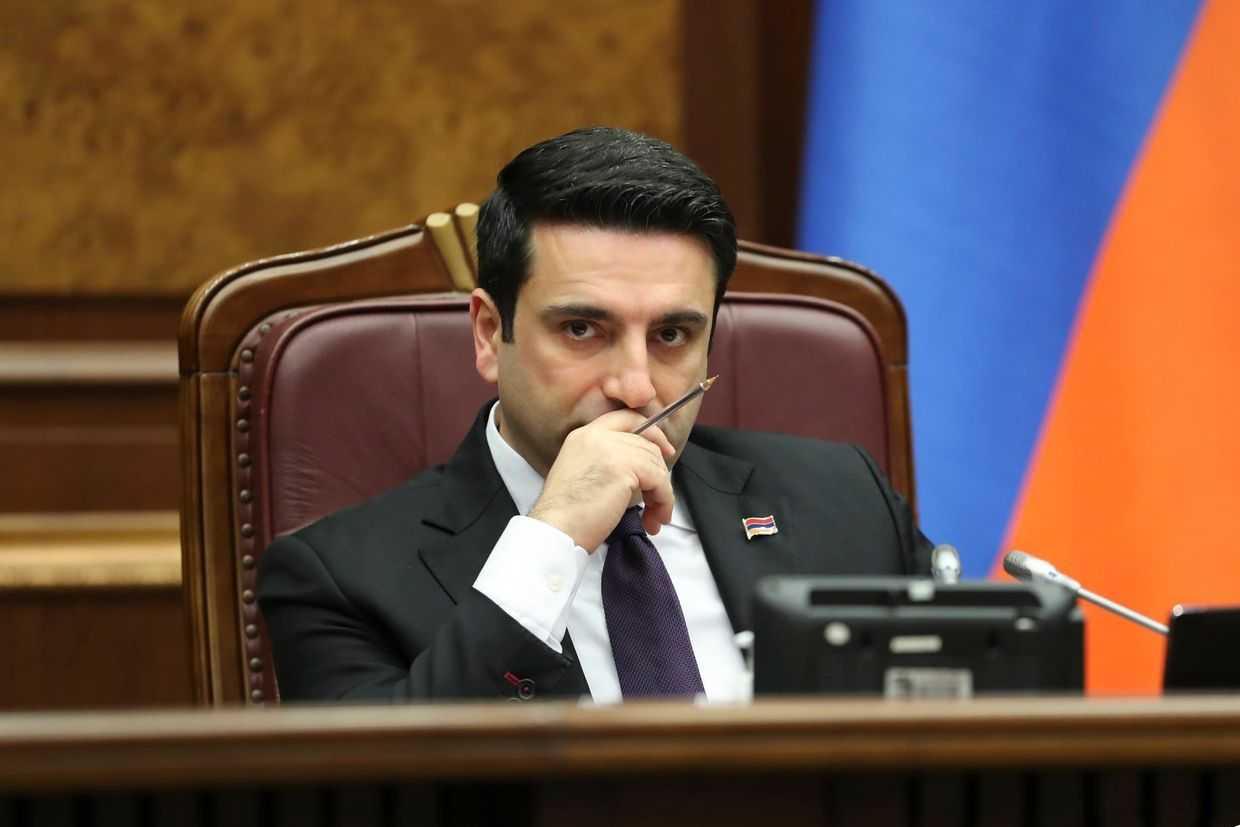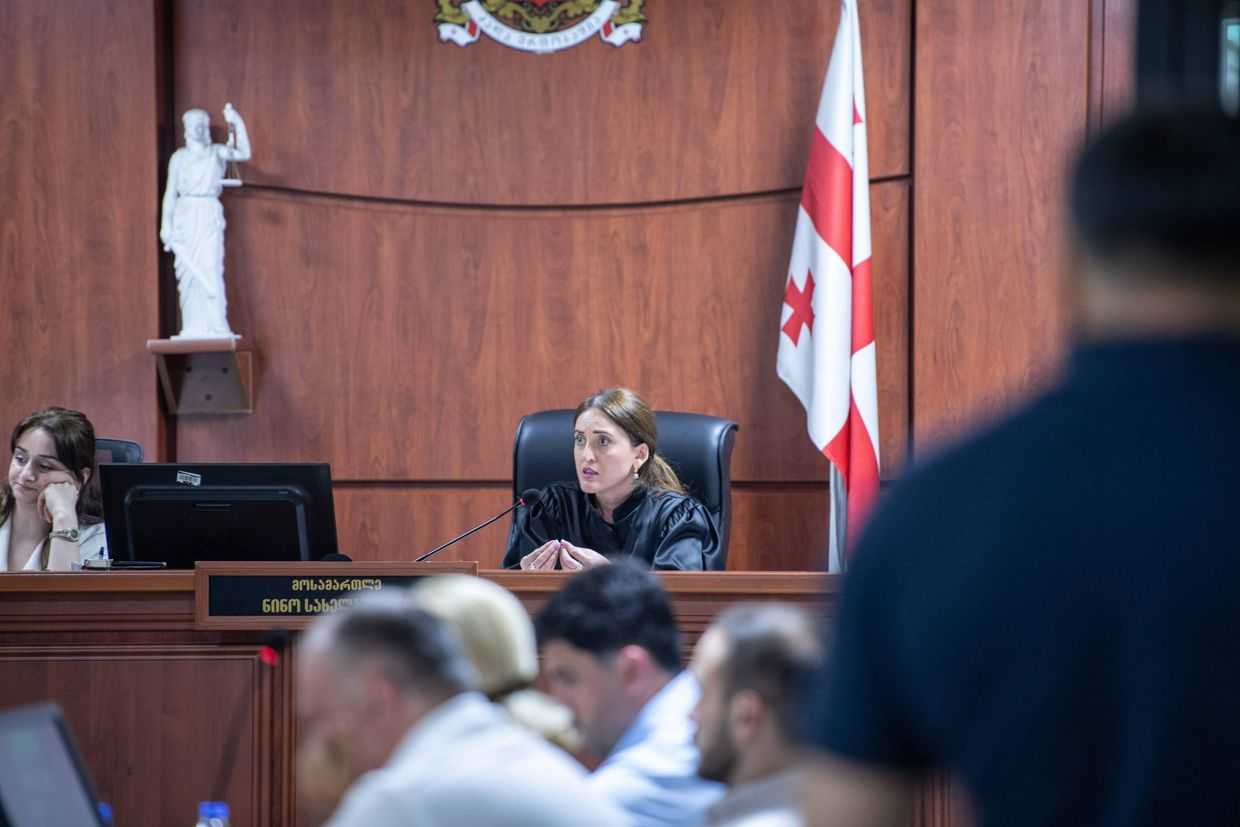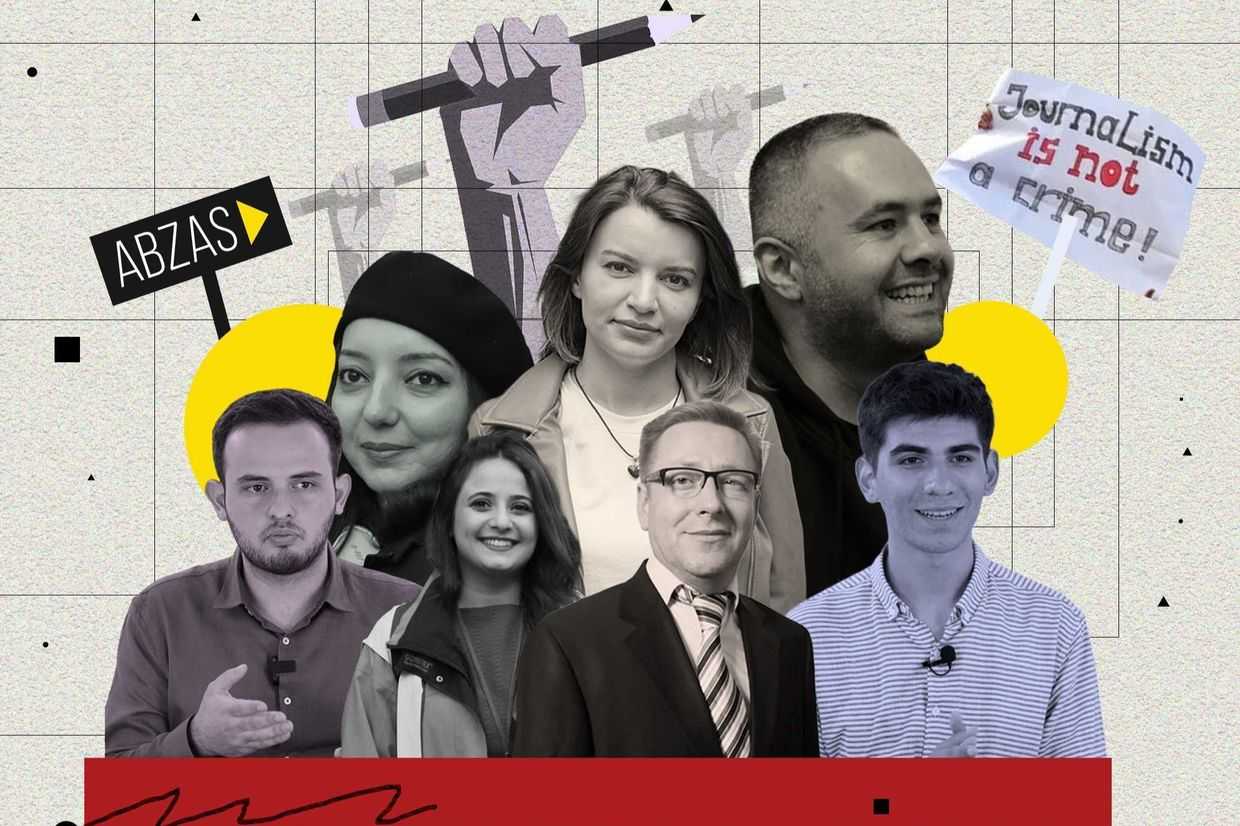
A 21-year-old Georgian who fought as a volunteer in Ukraine is facing up to seven years in prison over his actions during the foreign agent law protests, while two journalists from independent outlets have been charged with petty hooliganism and disobeying the police.
Tornike Akopashvili is accused of attacking a police officer during the protests against the proposed foreign agent law in early March. If found guilty, he faces four to seven years in prison.
Akopashvili has denied the charges, telling Publika that the only evidence used against him was a video in which he hit the shield of a special forces soldier with a rubber band on 7 March.
‘[The investigation says that the special forces officer] was physically injured, but the footage clearly shows that the long rubber band just hits the shield,’ said Akopashvili. ‘I wasn’t thinking of injuring [the special forces officer]’.
[Read on OC Media: Poisoned, soaked, but still dancing: Georgia’s Zoomers come of political age]
According to Akopashvili, he was forcibly arrested on 8 March by five police officers dressed in civilian clothes, who hit him and forced him into a car.
‘[After getting into the car] they didn’t let me raise my head, I told them I have shortness of breath, but they didn’t let me raise my head’, said Akopashvili. He added that despite his demand that they explain who they were, it was only after an hour that they told him they were police officers.
Akopashvili was released on 10 March on ₾3,000 ($1,200) bail, which he fundraised for on Wednesday, after the date of his trial was announced as 1 May.
Speaking to Publika, he said he had fought in Ukraine against Russia as a volunteer for ten months in 2022, having previously served in Georgia’s army for two and a half years.
Akopashvili is not the first person to face a long prison term for participating in the protests against the foreign agent draft law.
Lazare Grigoriadis, also 21, was the first person to be detained and charged over actions at the foreign agent protests. He faces up to 11 years in prison on charges of throwing two Molotov cocktails at the police and setting a police car on fire. The next hearing of Lazare’s case is also set for 1 May.
‘Petty hooligan’ journalists
Earlier this week, two journalists from independent outlets were charged with petty hooliganism and disobeying police demands at a protest against the foreign agent law’s first committee hearing on 2 March.
Publika director Zura Vardiashvili and Tabula journalist Beka Jikurashvili were each fined ₾2,200 ($880), the former on Tuesday, the latter on Wednesday. Both deny the allegations.
On Thursday, the Georgian Media Advocacy Coalition described the decision to fine Vardiashvili and Jikurashvili as ‘another step against journalists, their activities and democratic processes’.
‘Tbilisi City Court fining journalists arrested at a rally against the Russian law creates a dangerous precedent and is harmful to [Georgia’s] media environment’, reads the statement. ‘It is clear that this decision is aimed at preventing and limiting [their] professional activity’.
Precise figures for how many people were arrested at all of the protests against the draft foreign agent laws have not been made public. However, according to the Ministry of Internal Affairs, a total of 134 people were arrested during the demonstrations on 7—9 March.
The foreign agent bills were supported by the ruling Georgian Dream party, and would have obliged non-governmental and media organisations that received more than 20% of their funding from outside of Georgia to register as ‘agents of foreign influence’ in a dedicated registry.
The draft laws were similar to a law adopted in Russia in 2012, which has since been used to stifle dissent and suppress civil society there.
Georgia’s parliament formally withdrew the draft legislation after two days of massive protests, during which law enforcement agencies used force, pepper spray, water cannons, and tear gas against protesters.







